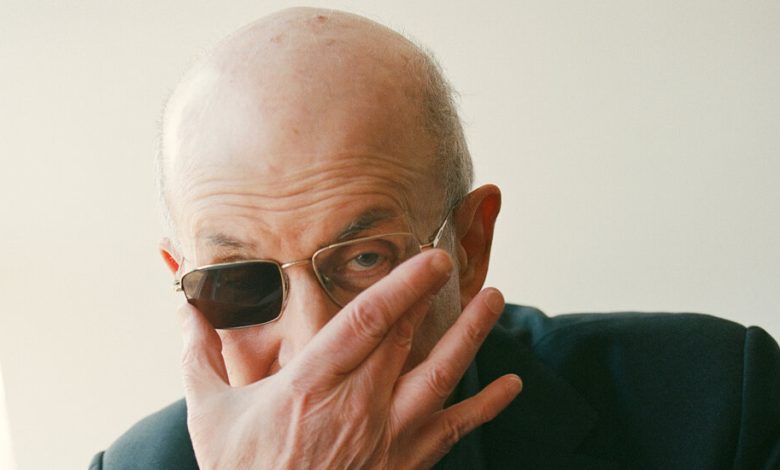He Was Blinded in One Eye, but Salman Rushdie’s Vision Is Undiminished

Last May, nine months after the knife attack that nearly killed him, Salman Rushdie made a surprise appearance at the 2023 PEN America literary gala. His voice was weak and he was noticeably thinner than usual; one of his eyeglass lenses was blacked out, because his right eye had been blinded in the assault. But anyone wondering whether the author was still his old exuberant self would have been immediately reassured by the way he began his remarks, with a racy impromptu joke.
“I want to remind people in the room who might not remember that ‘Valley of the Dolls’ was published in the same publishing season as Philip Roth’s ‘Portnoy’s Complaint,’” he said, riffing on an earlier speaker’s mention of Jacqueline Susann’s potboiler. “And when Jacqueline Susann was asked what she thought about Philip Roth’s great novel” — with its enthusiastically self-pleasuring main character — “she said, ‘I think he’s very talented but I wouldn’t want to shake his hand.’”
It was classic Rushdie, improvisational literary wit deployed during a solemn occasion, in this case his acceptance of the organization’s Centenary Courage Award. It was also a triumphant signal that his brush with death — more than three decades after Ayatollah Ruhollah Khomeini of Iran issued a fatwa calling for Rushdie’s murder over the novel “The Satanic Verses” — had dampened neither his spirit nor his determination to live life in the open.

His new book, “Knife,” which will be published April 16, is a harrowing account of the attack and its aftermath, and a reminder of how gravely injured he was. It’s also a deeply moving love story that attributes much of his recovery and good spirits to the tender, brave support of his wife of three years, the poet and novelist Rachel Eliza Griffiths. (They met at an event in 2017 and flirted over drinks at the after-party; he walked smack into a glass door as he attempted to follow her onto the roof deck. The rest is history.)
“I wanted to write a book which was about both love and hatred — one overcoming the other,” Rushdie said in a recent interview. “And so it’s a book about both of us.”